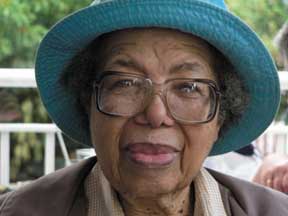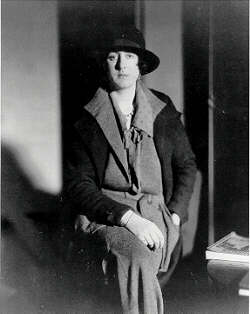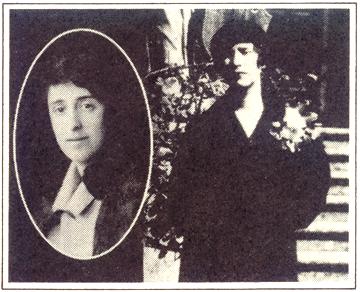 Click
here to read commentary on Anita Cornwell
Click
here to read commentary on Anita CornwellRead an excerpt of Anita Cornwell's groundbreaking book,
Black Lesbian in White America
click here to read Anita's work on amusejanetmason.com
author |
books | poetry | about | audio/site map | submit | Tea Leaves: a memoir of mothers & daughters | links/contacts | readings/appearances |
 Click
here to read commentary on Anita Cornwell
Click
here to read commentary on Anita Cornwell
Read an excerpt of Anita Cornwell's groundbreaking book,
Black Lesbian in White America
click here to read Anita's work on amusejanetmason.com
check out Janet Mason's author blog
Anita Cornwell was in her forties by the time second wave feminism arrived in the mid-1960s. She soon became one of the few black lesbians in the United States who were living out, speaking out, and writing out. Her pioneering book Black Lesbian in White America published in 1983 by Naiad Press.
 With
My Ears Wide Open-- by Anita Cornwell
With
My Ears Wide Open-- by Anita Cornwell
Oh, The Joys (And Sorrows) of Being Young, Gifted and Gay
Vita Sackville-West
as depicted in Portrait of a Marriage
1.
"Vita was always in love. I do not know of any moment in her life when she was not longing to see or hear from the only person who could satisfy that longing," wrote Nigel Nicolson about his mother, the poet and novelist, Vita Sackville-West, in his book, Portrait of a Marriage.
More aptly, the book could
have been titled
"A Portrait of Vita" because it is in those passages written by or
devoted to her that it is most alive. Here is Virginia Woolf on that subject:
Vita for three days at Long Barn...I like her and being with her and the splendor--she
shines in the grocer's shop in Seven oaks with a candlelit radiance, stalking
on logs like beech trees, pink glowing, grape clustered, pearl hung...What is
the effect of all this on me? Very mixed. There is her maturity...her being
so much in full sail on the high tides...her capacity ... to take the floor
in any company...."
Virginia Woolf was perhaps Vita's most illustrious love and Violet Keppel the most devastating; and there were ohters, before and after her relationships with those two women. When Vita became formally engaged to Harold Nicolson (who, like Vita, eventually became more attracted to his own sex) at twenty-one, she was in love with Rosamund Grosvenor whom she first met when she was six and Rosamund ten.
"Rosamund wasn't exactly jealous of him [Harold] then; he was too far away [in Constantinople as a junior diplomat] and our engagement was too vague, and she knew that although I was very fond of him I was passionately in love wiht herself--I use the word 'passionately' on purpose. It was a passion that used to make my head swim sometimes, even in the daytime, but we never made love," Vita wrote in her autobiography, which makes up nearly one-third of the book.
If Vita never
made love with Rosamund, her affair with Violet Keppel (later Trefusis) was
tempestuous enough to last many people a lifetime. Although the two had first met when Vita was twelve
and Violet ten, and had discovered a strong -- and disturbing --bond between
one another, it wasn't until nearly five years after Vita's marriage that their
love affair erupted.
many people a lifetime. Although the two had first met when Vita was twelve
and Violet ten, and had discovered a strong -- and disturbing --bond between
one another, it wasn't until nearly five years after Vita's marriage that their
love affair erupted.
As vVita wrote in her autobiography, Vilet "had been here ...about a week when everything changed suddeenly--changed far more than I foresaw at the time; changed my life... An absurd circumstance gave rise to the whole thing; I had just got clothes like the women-on-the-land were wearing, and in the unaccustomed freedom of breeches and gaiters I went into wild spirits; I ran, I shouted, I jumped, I climbed, I vaulted over gates, I felt like a schoolboy let out on a holiday; and Violet followed me across fields and woods...saying very little, but never taking her eyes off me, and in the midst of my exuberance I knew that all the old under-current had come back stronger than ever...I remember that wild irresponsible day. It was one of the most vibrant of my life..."
Harold was not due home that night so the two women dined alone and later, in Vita's sitting room, they talked half the night. Or more precisely, Vita talked, as she later wrote, "Violet has struck the secret of my duality; she attacked me about it, and I made no attempt to conceal it from her or from myself...I talked out the whole of myself with absolute sincerity and pain...Then, when I had finished...she brought me round to my attitude towards herself, as it has always been ever since we were children, and then she told me how she had loved me always, and remineded me of incidents running through the years, which I couldn't pretend to have forgotten."
Although Vita was the older by two years, Violet was in many ways far more mature. She drew Vita out skillfully, "she didn't rush me, she didn't allow me to see where I was going; it was all conscious on her part, but on mine it was simply the drunkeness of liberation -- the liberation of half of my personality." Violet stayed on for nearly a week, and all the time, Vita continues, "I was in fantastic spirits...There was very little between us during those days, only an immense excitement and a growing wish to go away somewhere alone together." And they did get away to Cornwall for nearly a week. The first time Vita had ever been away from Harold, who minded her going but could not deter her.
It should be stated here and now, I suppose, that Vita was something of a chauvinist (although how could one of them not have been at that time and place: patriarchal England at the close of World War I?) She dominated Violet completely; and Villet, being the properly brought up female child of that era, loved Vita utterly and had for many a year, as she confessed to Vita when they were sixteen and eighteen, respectively: "I Iove you, Vita, because I have had to fight for you so hard....I love you because you will never capitulate. I love you for your fine intelligence, for your literary ambition...and I love you because you never seem to doubt my love. I love in you what I know is also in me, that is, imagination, a gift for languages, taste, intuition, and a mass of other things. I love you, Vita, because I have seen your soul."
Ten years after that letter was written, during that fateful summer that was to remain etched in their memories for the remainder of their lives, Vita wrote, "...the whole of that summer she was mine--a sad and irresponsible summer of moonlight nights, and infinite escapes, and passionate letters, and music, and poetry. Things were not tragic for us the, because although we cared passionately we didn't care deeply--not like now, though it was deepening all the time; no, things weren't tragic, they were rapturous and new, and one side of my life was opened to me... I found out things about my own temperament that I had never been sure of before..."
Things turned tragic when their men re-entered the picture. Vita, of course, was already married and had two children, who, because of her affluence, were little bother to her. But Denys, Violet's eventual fiance, and Harold, Vita's husband, were great bothers to them, and in the long-run caused the lovers to finally drift apart some three or four years later.
Meanwhile though, late that fall, Vita and her lover left for France where, two years later Vita could write, "Even now the intoxication of some of those hours in Paris makes me see confusedly; other hours were wretched because Denys came (the war just being over), and I wanted Violet to myself. But the evenings were ours. I have never told a sould what I did...I dressed as a boy. It was easy because I could put a khaki bandage round my head, which in those days was so common that it attracted no attention at all. My height of course was my great advantage. I looked like a rather untidy young man, a sort of undergraduate, of about nineteen. It was marvelous fun, all the more so because there was always the risk of being found out...I had done it once already in England...
"...I changed in my own house in London late one evening (the darkened streets made me bold) and drove with Violet in a taxi as far as Hyde Park Corner. There I got out. I never felt so free as when I stepped off the kerb, down Piccadilly, alone and knowing that if I met my own mother face to face she could take no notice of me...Well, this discovery was too good to be wasted, and in Paris I practically lived in that role. Violet used to call me Julian.... I personally had never felt so free in my life. Perhaps we have never been so happy since."
Editor's Note: To read part 2 of Anita Cornwell's exploration of Vita Sackville-West's Lesbian Life return, next month, to amusejanetmason.com
| readings/appearances | books | poetry | about | audio/site map | submit | Tea Leaves: a memoir of mothers & daughters | links/contact | author |